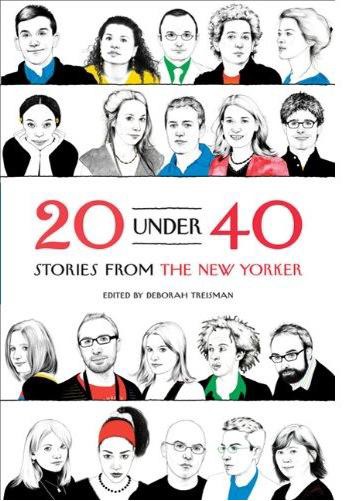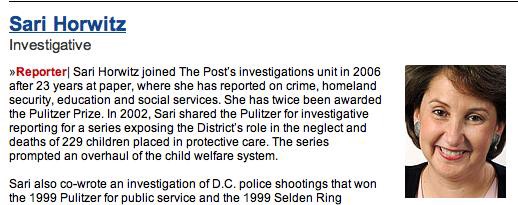On Expectations (And A Writer's Lack Of Same)
by S.J. Culver

1.
This winter I got a rejection note for a short story I had sent out to a magazine 838 days previously. I have too much personal integrity to name the magazine (that was a joke; I don’t; I’m just scared of editorial blacklists), but here’s a short list of things I did with my life while that magazine was considering whether to publish my 16-page story: I grew my hair ten inches; I paid off a car loan; I did my taxes (three times); I got my own apartment; I read 131 books; I attended two weddings and a baby shower; I cut my hair off again; I drove across the country three times. Additionally: I completed an MFA in creative writing, taught five semesters’ worth of college freshmen how to write, and, after 149 job applications, landed a full-time position with health insurance and a 401(k). I wrote a dozen more stories and the beginning of a novel. I sold reviews and articles to various markets. I actually published the story in question in another magazine. In the animal kingdom, the elephant is considered to have an especially long gestation period at 22 months. Depending on your reckoning, 838 days is one elephant, two giraffes, three humans, five sheep, 19 kangaroos, 25 litters of rabbits or 70 litters of North American opossums. If I’m good in this life, perhaps heaven will be the chance to set a pair of possums loose in a certain editorial office.
2.
Studies of emotional cognition in preschoolers have shown that the ability to mask disappointment is highly correlated with perceived social skill level. “Display rules,” that is, accepted social guidelines dictating the expression of emotions, can be seen in use by children as young as three years old — children who don’t yet fully understand the difference between authentic and fabricated emotions. Writers, who understand nothing if not the difference between authentic and fabricated emotions, are often shockingly bad at hiding their own disappointments. For example: begin talking about trying the writing life, about applying to MFA programs, and the first thing anyone who has gone through a writing program will tell you is, “Don’t expect to get anything out of it.” You’ll be told that workshop is harsh (or else stupid), that creative writing teaching jobs are a figment of Jane Smiley’s imagination, that James Franco is the only person in the country allowed to publish short stories anymore. You’ll be assured, essentially, that putting pen to paper is bad business.
Fiction writers who have had some success are a little better at hiding this kind of sentiment, but not by much. Try finding any essays or interviews with well-known writers that don’t take the same cynic-stoic approach. “Don’t compare yourself to anyone, and learn to keep from building expectations,” writes one of the grandfathers of short fiction, Richard Bausch, in his “ten commandments” of writing. Translation: Never think about Jonathan Franzen, if you can help it. There could hardly be more of a difference between Bausch and a writer like Zadie Smith, yet here is Smith expressing a similar sentiment: “Resign yourself to the lifelong sadness that comes from never being satisfied.” This mantra of acceptance is everywhere. Acceptance of the difficulty of the writing task. Acceptance of the waiting. Acceptance of the greatly flawed and hugely problematic enterprise of mainstream publishing. Acceptance — grimly — of rejection itself.
3.
It’s possible to make too good a study of limiting expectations. I can attest to that fact. Writers, as a group, like nothing more than to talk about their “process,” which is how I know that I don’t have a good one. Since finishing their MFAs, some of my graduate school colleagues have landed major book deals, published work in prestigious magazines and taken jobs in high-profile literary organizations. They self-promote and network; they get by on sheer talent and grant money. They start their writing days at dawn. Some of these folks are polymaths: they research and write, play music and write, design fashion accessories and write, do stand-up comedy and write. Others are simply diligent, polishing and refining final drafts of projects they began years ago and are seeing through to completion.
I wish I belonged to either of these groups. Instead, on my computer’s hard drive languish five partial drafts of the novel I began writing in 2008. All of the drafts are between 100–200 pages in length. I don’t think any of the abandoned drafts are terrible, which, in a way, is worse than thinking they’re just unworkable. Those drafts make me think the problem is that simply that I cannot finish a book-length work. I don’t have the stamina, the attention span. I have game, but I can’t close. Some of this paralysis is surely caused by ineptitude — if I knew how to write a novel, I would have written the damn thing by now — but I’m suspicious of the effects of the writer’s gospel of resignation.
A year ago, my graduate school thesis director read a new story of mine, a story that I had written as an exercise and did not think was very good. In an email, he told me it was terrific, that if I could write a few more stories like it, I’d have a book deal. I laughed at my computer screen when I read his message. I was surprised he thought the story was impressive — but I was more surprised at his rosy forecast for my writing career. Hadn’t he heard about the James Franco thing? I dismissed his response, citing his insulated position as a successful writer. His work never saw a slush pile. He wasn’t following publishing trends obsessively, like every young writer I knew. Clearly, I could not take his message seriously. I knew better. I knew what to expect of myself and of my work: little, if anything at all.
4.
Low expectations are not a recipe for good self-care. You get sour; you drink too much wine; you stop reading because everything you read makes you even more sour; you go on diatribes against successful young writers in the kitchens at parties. You definitely are not working out. Eventually you wear a hole in one of the elbows of your bathrobe and instead of taking it off, you think, “That makes sense. It’s nice to have a little air circulating around. They should make all the bathrobes this way.”
Funnily enough, it was the 838-day rejection that led my way out of this low-expectations funk. That particular thanks-but-no-thanks got under my skin. I was outraged, really outraged, when it popped up in my inbox — not because I really thought my story had stood much of a chance at the magazine in question, but because it was the first rejection in some time to catch me off guard. Usually I expect the rejection slips; they turn up like clockwork four months, six months, eight months after I mail off a submission (a beaver, a baboon, and a moose, respectively, if you’re keeping track). My mind is steeled against their inevitable arrival, knowing the odds, knowing I’m no genius. This one was a nasty surprise, though, and for a day or two I was just disgusted.
I’ll tell you what, though — after I got that rejection, I finally thought about what disappointment actually means. I stopped trying to avoid it and just thought about it: about why we’re ashamed of it, about why we try harder to hide it than feelings that are inarguably worse (see: rage, hate). In a letter to Bennet Langton, Samuel Johnson writes, “I know not anything more pleasant, or more instructive, than to compare experience with expectation, or to register from time to time the difference between idea and reality. It is by this kind of observation that we grow daily less liable to be disappointed.” What a jerk this guy was, right? I think differently about disappointment: I don’t think our goal should be to avoid it. I think disappointment is evidence we’re on the right track. I think it means we’re after the things that matter. I think we should stop being afraid of getting caught caring about our failures.
5.
I would like to end in an uplifting way — to write that I ended up submitting the story my advisor liked, that it’s been published, that I’ve taken up an old draft of my novel and am now determined to finish it. The truth is, perhaps appropriately, somewhat more disappointing. I did submit that story, but so far it has garnered nothing but more rejection slips of the “Dear Writer: Go away!” variety. I recently began a new draft of the novel, electing to ignore the files piling up on my computer’s desktop. I got a free copy of The New Yorker’s “20 under 40” anthology and used it as a weight to hold down the lid of my broken garbage can.
There is, however, one small, good thing here: I have not given up. I read every day; I write every day. I’m reminded that I know what I want. I’m reminded that if disappointment is all that I must bear, I can bear it — I can welcome it.
S. J. Culver has some degrees in writing and maintains a tenuous web presence here.
The Upside Of Our Nation's Debtors' Prisons
Some pessimists may worry that “the jump in debt-related arrest warrants is creating a modern-day version of debtors’ prison,” but let’s look at the bright side: Maybe the next Charles Dickens is experiencing a creative birth at this very moment because of these horrible events! It’s a small price to pay, right?
Neko Case, Live in Bed

Literally the most charming thing ever? Neko Case singing a song from bed with her dog. I have two things to say about this, but they’re not important and just GO WATCH, it’s great. (Okay, so: 1. I have always loved Neko Case but having her on Twitter and now in videos made in bed with her dog has totally transformed the way I think about her. Previously she was distant to us — all I really knew before was that she hated piracy and was great. Now? I know when her dog shits in the truck. 2. I suspect that the reasons that Liza the enormous truck-shitting dog gets all pissy with Case’s singing are A) the sheer volume and B) also the totally intense overtones. Remember how Sasha Frere-Jones wrote, “when the throttle is open her chest voice is more than a mere horn section.” There’s like four voices in there when she’s really going, and Liza is hearing way more than we people are, particularly in-person, without the reducing and distorting effects of the audio codec on the video. I would love to know what it sounds like for Liza! If you’ve ever had a singer-singer sing at you up close, it’s crazy. Like, hearing Mariah Carey from three feet away? It’s a completely different harmonic experience, the “partials,” as they call them, are all over the place, and I imagine you’d hear so much wildness up close with the Lady Case.) Anyway! Charming! And all in support of a benefit for 826 National that is ending tonight.
Four Benefits for Japan: A Conversation with John Zorn
by Seth Colter Walls

Here is a much more effective and fun way to donate to the Japan earthquake relief cause than sending a bunch of text messages: a series of upcoming benefits organized by John Zorn. The first has sold out, it looks like (on Sunday March 27 at Columbia’s Miller Theater), where Sonic Youth, Yoko Ono, Cibo Matto, Marc Ribot and a bunch more are performing. At that benefit and at least three more to follow, 100% of the money will be going to the Japan Society’s Earthquake Relief Fund. For-real charity + free radical music = good deal all around, right? Last night, The Awl emailed back and forth with the very busy sounding organizer and host of the events, John Zorn, who started off by telling us:
as i am still organizing the benefit concert at abrons art center i dont have as much time as i would like to give you
forgive me if i remain brief here
It wasn’t all that brief.
Zorn also has a one-act, opera-ish thing — La Machine de l’Être — making its world stage premiere run at New York City Opera next week.
The Awl: First things first. You mentioned that “the tragedy and devastation is really overwhelming,” and so I was wondering: Are the folks you know in Japan all safe and accounted for?
John Zorn: everyone in japan is concerned about the tragedies as they are unfolding, from the south in kansai to tokyo where most of my friends are, into sendai, where a close musician friend’s aunt was lost, across to hokkaido and beyond —
many personal stories but none i am at liberty to share here
The Awl: You organized this great roster. How quickly did the whole thing come about? Who was your first call?
Zorn: i put this event at miller theater, the event at japan society on april 9th (see below) and the 2 events a abrons art center together (below) in about 24 hours
still finalizing the abrons event as we wait for a few confirmations from some important artists and bands
the calls were pretty easy — everyone agreed immediately!
the only reason someone may not be appearing is because they were not available, out of town on tour!
so many wanted to participate i will try to organize more benefits later on in april
APRIL 9 at JAPAN SOCIETY
PHILIP GLASS & HAL WILLNER
LOU REED, LAURIE ANDERSON & JOHN ZORN
RYUICHI SAKAMOTO SOLO
BILL LASWELL WITH GIGI
APRIL 8 at ABRONS ART CENTER
THURSTON MOORE
MILFORD GRAVES
JOHN ZORN
MARK FELDMAN & SYLVIE COURVOISIER
ELLIOTT SHARP
IKUE MORI
JAMIE SAFT AND NEW ZION TRIO
MIYA MASAOKA
AYA NISHINA
GYAN RILEY
MASADA STRING TRIO
NED ROTHENBERG
ERIK FRIEDLANDER
MATTHEW SHIPP
ALHAMBRA TRIO WITH ROB BURGER
SEX MOB
JG THIRLWELL’S MANOREXIA
ELYSIAN FIELDS
BUKE AND GASS
VINICIUS CANTUARIA
JESSE HARRIS
other names pending
The Awl: Is this the first time you and Yoko Ono will be sharing a bill? If so: any chance you’ll improvise together?
Zorn: masada shared a bill on summerstage with yoko ono and cibo matto maybe 9 years ago
we jammed a bit back then at the end and it was a BLAST — no idea what might happen on the 27th!
certainly there will be some surprises!
The Awl: When did you first travel to Japan? To what extent were you already aware of the depth of the avant-garde tradition there before you went? Or, put another way: how much was still left for you to discover once you arrived?
Zorn: this is a long question
was way into japanese art, literature, film, music and theatre from my teens — in the 60s
first went there in 1985 or so
kept an apartment there in KOENJI (tokyo) til 1995
played with SO MANY artists is hard to keep track
i remember seeing a trio of yoshida tatsuya, yamataka eye and null called i believe GEBA GEBA that really was amazing
hooked up with EYE that very night and we have been tight ever since!
the scene there was and still is incredibly diverse and creative
amazing energy and imagination!!
The Awl: It’s funny how some way-out recordings — such as Coltrane’s “Live in Japan” box set — were first issued in Japan as though they were no big commercial risk. Maybe it’s because music on the fringe feels as though it’s so aggressively marginalized in the U.S., but I’m curious how you see Japan’s relationship, as a country, to its own musical avant-garde.
Zorn: its just as hard for the avant garde in japan as it is for the avant garde here
but the integrity, creativity and tenacity they have is inspiring
they do what they do with no compromise, and very little outside support
The Awl: Can I ask you for your Top 10 list, regarding extreme/experimental/noise/improv albums by Japanese artists?
Zorn: cant do the top ten but here is a list of some of my favorite musicians!!!
asakawa maki
sato masaru
yamataka eye
yoshimi
haino keiji
makigami koichi
yoshida tatsuya
katsui yuji
seiichi yamamoto
takahashi yuji
ryuichi sakamoto
akiko yano
hosono haruomi
toshinori kondo
ohta hiromi
aoyama michi
kitajma saburo
takemitsu toru
otomo yoshihide
The Awl: In addition to this benefit, you have a one-act, wordless operatic piece making its world stage premiere at New York City Opera. How have rehearsals been going? Anything you can say about how they’re staging a monodrama with no words?
Zorn: michael counts’ staging of my monodrama is a complete KNOCKOUT
70 people on stage, wild costumes, people flying thru the air, pyroechnics, animations of artaud drawings, and the AMAZING voice of Finnish soprano, Anu Komsi —
its going to be OUT THERE
and dont forget the masada marathon at new york city opera on march 30
its perhaps the biggest concert i’ver ever done in NYC
12 masada bands in one night!
each play 15 minutes
Two 90 minute sets with one intermission.
featuring:
Marc Ribot, Uri Caine, Dave Douglas, John Medeski, Secret Chiefs 3, Greg Cohen, Joey Baron, Cyro Baptista, Kenny Wollesen, Jamie Saft, Erik Friedlander, Mark Feldman, Sylvie Courvoisier, Trevor Dunn and many others.
Masada Quartet
Sylvie Courvoisier & Mark Feldman
Cyro Baptista’s Banquet of the Spirits
Mycale
Medeski, Martin and Dunn
Bar Kokhba
Secret Chiefs 3
Masada String Trio
Uri Caine solo
The Dreamers
Erik Friedlander solo
Electric Masada
The Awl: Thanks for talking to us!
Zorn: it needs to be done
we all want to help any way we can
its very inspiring to know that musicians can help by playing music!
And now: A BONUS AWL LISTICLE WITHOUT COMMENTARY:
The 10 Best Albums from the “New Japan” Series on John Zorn’s Label, Tzadik Records, If You Would Like to Explore
10. Ni Hao! — “Gorgeous”
9. Purple Trap — “Decided… Already The Motionless Heart Of Tranquility, Tangling The Prayer Called ‘I’”
8. Derek and the Ruins — “Saisoro”
7. Yoshida Tatsuya + Satoko Fujii — “Erans”
6. Yamataka Eye + John Zorn — “Naninani II”
5. Haino Keiji + Yoshida Tatsuya — “New Rap”
4. Ayuo + Ohta Hiromi — “Red Moon”
3. Sajjanu — “Pechiku!!”
2. Seiichi Yamamoto — “Nu Frequency”
1. Afrirampo — “Kore Ga Mayaku Da”
Seth Colter Walls is The Awl’s chief correspondent for the difficult arts. He has a Tumblr and a dayjob both!
Odd Future Is Like Early-20th-Century Italian Poet Filippo Tommaso Marinetti
“Is OFWGKTA offensive? Yes, but they’re also undeniably funny, sad, and, somehow, devoid of moral gravity in a way that’s both silly and nearly surreal. One friend of mine has referred to OFWGKTA’s lyrics as coming from an unformed “girls are gross” perspective, and certainly, in the YouTube videos where 16-year-old Earl Sweatshirt isn’t rapping about cannibalism and screwing corpses, he comports himself like a shy, polite kid just out to goof off with his friends. At the same time, OFWGKTA makes such doggedly creative and self-aware music that it sometimes feels as if they’ve chosen depravity not because they want to, but because they can. If there’s such a thing as meta-vile, then these kids are your pioneers.”
— Over at the Poetry Foundation, Awl pal Bethlehem Shoals gets at the undeniable appeal of the young new rap stars Odd Future Wolf Gang Kill Them All, who performed at MTV’s amusingly named Woodie Awards last night.
Resume Bias and Plagiarism

Yesterday, when the Washington Post published a terrible and vague Editor’s Note about plagiarism, I looked up the articles that they seemed to be referencing as plagiarized. (Here and here.) And then I discounted them, because of resume bias, and went looking for similar stories in the paper from someone more junior or more obviously inexperienced. After all, the reporter, Sari Horwitz, has been with the paper nearly 30 years. She is a two-time Pulitzer winner. She has a Master’s from Oxford!
And the stories were about Tucson and she’s from Tucson. So it didn’t make any sense.
And but then, the Post named her today and published her apology, and said they’d looked at all her stories from “this year” (this calendar year?) and spot-checked some older work, and found no other evidence of plagiarism. (I would go a little deeper? But, sure, I know, who has time.)
So she’s been suspended for three months, and not fired — because they have both familiarity bias and probably resume bias too. (Also: it would be stupid to fire her anyway.)
But in her apology, she touches on neither how or why it happened, and that’s something I’d love to know. How do you end up with 15 paragraphs of someone’s story in your own? That’s literally impossible to execute as an “oh my sources document got mixed up in my story” maneuver. (I think so, at least? I mean, maybe someday it’ll happen to me! Everyone is afraid of doing something stupid.) So but how? It’s either a cry for help, a statement of anger at the institution or the act of a person so preoccupied with other things that she no longer is even thinking about her job. In plagiarism cases we so rarely understand why it happened, and this is frustrating, because we almost have a window into finding out.
Hangovers Do Not Improve With Age

Do hangovers get worse as you get older? Science says yes! Why? Because everything gets worse as you get older. You think your recovery from debauchery should be immune? Fool. You’re DYING SLOWLY. Nothing improves. Anyway, Happy St. Patrick’s Day. Let’s all celebrate the grand culture of the Irish by drinking like people with crippling alcohol dependencies and vomiting into the street.
Image by wickedneuron, from Flickr.
Did You Finish Your Bracket Yet?
If you are planning to participate in The Official 2011 Awl March Madness Bracket Tournament Challenge Sponsored By The Awl but are still tinkering around with your bracket, fair warning: The deadline is noon eastern today. Hurry it up.
Weird Omissions: Yes, Goldman Sachs is Now Bill Clinton's Landlord
Here, let us fix this strange omission from this news brief for you, New York Times! “The William J. Clinton Foundation is moving most of its offices from Harlem to 77 Water Street in the financial district, in Lower Manhattan” … where, the paper might mention, Clinton will be subleasing from Goldman Sachs until 2013, at which point the lease is with the owners. (Space which has been vacant for, what, eight years? And had been gut-renovated by Goldman and then never used.) Just so we’re clear!
